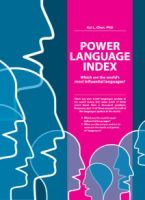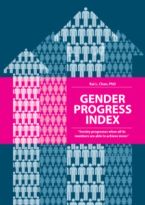I had a discussion with an economics professor about the growing inequality of American society last year. My theme in that conversation was that the United States, like Brazil, is embarking on a path of becoming a nation of haves and have-nots. The Gini coefficient — familiar to economics students — is a widely quoted measure of the inequality in a nation. A value of zero represents a perfectly equitable society, whereas a value of one describes an economy in which one person owns all the resources. Japan and the Scandinavian countries are the world's most income-equitable countries. They have income Ginis of about 0.25. On the other hand, Brazil's figure is 0.61. Closer to home, Canada has an income Gini of 0.32, while here in this country it was 0.41 when last measured in 1998 and it is growing quickly. By most estimates, this number now probably stands close to 0.45. But all these numbers are really abstract. What exactly does it mean for a country to have a Gini of .25 as opposed to .61? To get a sense of the disparity between rich and poor, in Japan the richest 10 percent earns five times as much as…

 A letter to the Princeton Alumni Weekly (PAW). July 10, 2019 (Volume 119, Number 15) The article on economic mobility (Life of the Mind, May 15) seems to confuse economic mobility with economic growth. Most economists measure economic mobility as intergenerational movement along the income-distribution ladder (rather than by absolute incomes). That is, to what extent do offspring track their parents’ position on the income distribution ladder at similar age profiles. The fact that 90 percent of children born in 1940 ended up earning more money than their parents was a result of a post-war economic boom whose gains were broad across the population. That only 50 percent of those born in the 1980s earn more than their parents is largely because median income has stagnated since about 1980 in spite of growth in average income, due to increasing income inequality; i.e. growth has been mostly captured by the elite. Yes, economic mobility is lower now than before, but this is expressed through what economists call the income beta: how well an offspring’s position in income distribution is predicted by their parents’ standing. A higher beta (lower mobility) — what we see now relative to the past — means (broadly…
A letter to the Princeton Alumni Weekly (PAW). July 10, 2019 (Volume 119, Number 15) The article on economic mobility (Life of the Mind, May 15) seems to confuse economic mobility with economic growth. Most economists measure economic mobility as intergenerational movement along the income-distribution ladder (rather than by absolute incomes). That is, to what extent do offspring track their parents’ position on the income distribution ladder at similar age profiles. The fact that 90 percent of children born in 1940 ended up earning more money than their parents was a result of a post-war economic boom whose gains were broad across the population. That only 50 percent of those born in the 1980s earn more than their parents is largely because median income has stagnated since about 1980 in spite of growth in average income, due to increasing income inequality; i.e. growth has been mostly captured by the elite. Yes, economic mobility is lower now than before, but this is expressed through what economists call the income beta: how well an offspring’s position in income distribution is predicted by their parents’ standing. A higher beta (lower mobility) — what we see now relative to the past — means (broadly… 





